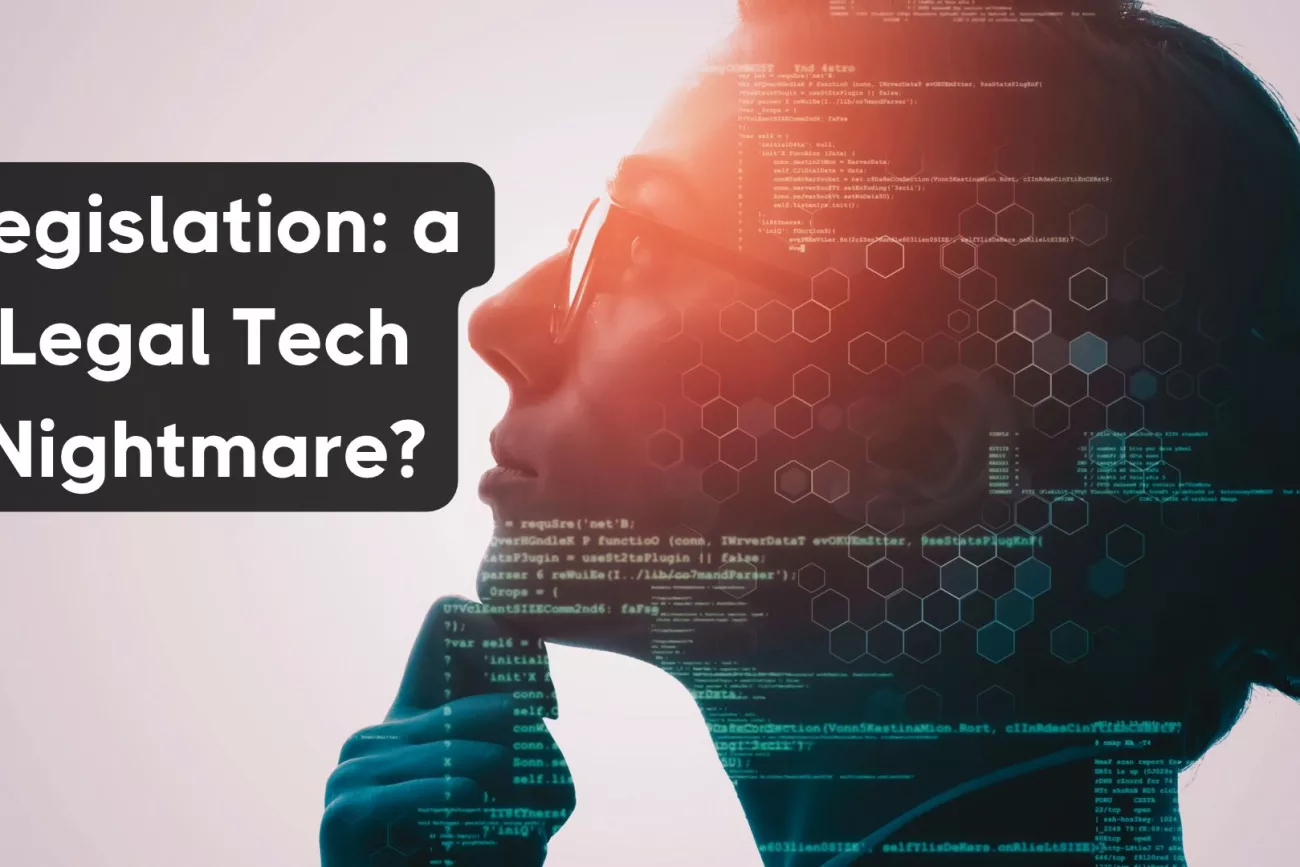
Key Points:
Global AI Legislation Landscape: Overview and comparison of Europe’s GDPR, China’s AI regulations, and the USA’s proposed AI laws.
Case Studies of AI Legislation: Detailed analysis of GDPR, China’s AI regulations, and the proposed US AI laws, focusing on their impacts and criticisms.
Big Tech Response: Examination of how Google and Facebook are navigating and responding to AI legislation, including their individual principles and stances.
AI Legislation: Nightmare or Utopia: Discussion of potential negative impacts (stifling innovation, “brain drain”, Big Tech dominance) versus positive outcomes (enhanced privacy, misuse prevention, fostering trust) of stringent AI legislation.
Introduction
The 21st century has witnessed the rise of artificial intelligence (AI) as one of the most profound technological revolutions. With its increasing prevalence in diverse sectors, AI is transforming our world at an unprecedented pace. However, this rapid evolution has brought to the fore the necessity of legal oversight. As the power of AI grows, so too does the debate surrounding its legislation – a subject that incites strong opinions from all corners of the globe. So, is the new AI legislation an innovative leap forward, or a potential legal tech nightmare? It’s a question that deserves our attention and thoughtful discourse.
💡 What are your initial thoughts on AI legislation? Is it a boon or a bane? Join the debate in the Linkedin comments! #AI #AILegislation 💬
🚀 The Global Landscape of AI Regulation: Impact on OpenAI’s ChatGPT
Artificial Intelligence (AI) has rapidly evolved to become a critical technology driving a host of applications across various sectors. The proliferation of AI technologies like OpenAI’s ChatGPT has brought with it an unprecedented array of challenges and opportunities. Amidst the fast-paced development, the need for a comprehensive regulatory framework to govern the use of AI has become more pressing than ever. This article explores the current status of AI regulation across the globe and the potential implications for ChatGPT.
1. The European Union: A Leader in AI Regulation
The European Union (EU) has made notable strides in its pursuit of a comprehensive AI regulatory framework. It is in the process of developing the AI Act, which aims to regulate AI development and its commercial applications. The Act primarily focuses on managing high-risk AI systems to prevent potential discriminatory, undemocratic, and dystopian outcomes. The EU strives to strike a balance between fostering AI innovation and ensuring stringent governance to protect the rights of its citizens1.
OpenAI’s ChatGPT, a generative AI model, has already had its first brush with this regulatory landscape. Italy’s data protection authority, the Garante, imposed a temporary ban on ChatGPT due to concerns about the model’s age verification process and its data collection practices. In response, OpenAI has pledged to cooperate and provide clarity on these issues. Meanwhile, Germany is considering a similar ban, and Ireland is taking a cautious approach, seeking thoughtful analysis before deciding on regulatory action1.
2. The United States: Balancing Innovation and Regulation
The United States, a global hub for AI innovation, has taken a more measured approach to AI regulation. While there isn’t as strong a push for comprehensive national AI legislation as seen in the EU, AI regulation efforts are underway at the state and municipal levels. The focus is on fostering the substantial AI innovation taking place within the country, with future regulations intending to support, not stifle, this innovation1.
The Biden administration has proposed an AI Bill of Rights, outlining key principles for AI companies to uphold civil rights. The Bill could serve as a basis for future AI policies in the U.S., potentially shaping the direction of AI applications like ChatGPT1.
3. China: Emphasizing Control and Security
China has taken a proactive stance towards AI regulation, with its cyberspace regulator drafting measures for managing generative AI services. These measures call for firms to submit security assessments before launching their services. They also mandate that providers ensure the legitimacy of the data used to train AI models, prevent algorithmic discrimination, and require users to submit their real identities. Non-compliance could lead to fines, service suspensions, or even criminal investigations2.
These regulations, when enforced, could have significant implications for AI applications like ChatGPT operating in the Chinese market.
🤖 Pioneering AI Legislation: Case Studies 🚀
Analysis of the European Union’s approach with GDPR
The European Union (EU) is at the forefront of developing a comprehensive law to regulate AI development and its commercial applications with the proposed AI Act. This approach is having several impacts on businesses operating within the EU. It is pushing companies to ensure the existing norms are respected and legal compliance is upheld for any AI already in use. However, there are concerns that further regulatory burdens could potentially stifle AI development.
On the positive side, there is an emphasis on upholding data privacy. This approach is seen in the treatment of AI systems under the EU General Data Protection Regulation, which calls for companies to ensure the privacy of data used in their AI systems. Notably, Italy’s data protection authority, the Garante, had issued a temporary ban on the generative AI application ChatGPT over concerns about data privacy, indicating the strength of the EU’s commitment to data privacy.
Critics, however, argue that the EU’s approach may be overly restrictive, potentially limiting the development and application of AI technologies. This is a delicate balance that needs to be struck between ensuring privacy and allowing for technological innovation.
AI Act co-rapporteur and Member of European Parliament Brando Benifei underscores the approach: “Based on our legal model, we want to identify (AI systems) that might pose further risks to safety and fundamental rights in our union. That’s also why we are now trying to further regulate those high-risk AI uses that we are identifying. For high-risk systems, we will ask for further verifications on data governance, and how they can manage them, in order to enter the EU market1】.
Scrutinizing China’s stringent AI regulations
In China, the Cyberspace Administration of China (CAC) has unveiled draft measures for managing generative AI services. These regulations could have profound effects on Chinese tech companies, requiring them to submit security assessments to authorities before they launch their offerings to the public. It also places responsibility on providers for the legitimacy of data used to train generative AI products, and for preventing discrimination in designing algorithms and training data.
These stringent measures have global implications, given the significant role China plays in the global tech ecosystem. But there’s controversy over the rule that service providers must require users to submit their real identities and related information, which some view as a potential tool for surveillance.
These regulations can potentially impact Chinese tech giants like Baidu, SenseTime, and Alibaba, which have been showcasing their new AI models. Non-compliance could lead to fines, service suspensions, or even criminal investigations.
There is yet to be a quote from a Chinese tech leader or legislator to be included.
Unpacking the United States’ proposed AI regulations
In the United States, the approach to AI regulation is being shaped by considerations of the significant amount of AI innovation happening within its borders. Potential regulations are expected to operate within the boundaries of frameworks, such as the U.S. National Institute of Standards and Technology’s AI Risk Management Framework. However, there are concerns about stifling innovation.
While there are efforts to ensure data privacy, the U.S. has yet to make as dramatic a push for comprehensive national AI legislation as the EU. The potential effects on Silicon Valley, a hub of tech innovation, are also a significant consideration in shaping these regulations.
Principal Deputy U.S. Chief Technology Officer Alexander Macgillivray highlights the approach, saying, “One of the most gratifying things for me about that letter was that it mirrored a lot of the concerns that we raised in the AI Bill of Rights. When we came out with the blueprint … we really focused on a bunch of principles that were important things for people to expect from these companies as they launched their AI rules and reference materials for people, for companies, for technologists and for governments, and how we think about AI and how we think about regulation”1.
Which case study do you find most intriguing or alarming? Let’s discuss!
💥 The Corporate Response: How Big Tech is Navigating AI Legislation 🏦
As the digital world continues to evolve, there has been an increasing emphasis on AI legislation, designed to regulate the applications and implications of artificial intelligence. Big Tech companies, key players in the AI field, have responded to these legislative changes in various ways.
Spotlight on Google’s Response to AI Legislation
Google, as one of the leading AI innovators, has developed specific AI principles to guide their projects. These principles emphasize safety, fairness, privacy, and transparency, committing to avoiding uses of AI that could harm humanity or concentrate power unduly. However, these principles, while noble, have been criticized as being vaguely defined, allowing room for different interpretations.
In response to the General Data Protection Regulation (GDPR), Google has taken substantial steps to ensure compliance. They’ve enhanced their privacy policy and implemented stronger security measures to protect user data. However, there’s a looming question about the sufficiency of these steps given the complexity of Google’s data collection and processing operations.
Regarding the proposed US AI regulations, Google has called for a balanced approach that encourages innovation while addressing the societal risks of AI. They have urged lawmakers to craft legislation that accommodates the speed of AI’s evolution and its global impacts.
Dissecting Facebook’s Stance on AI Legislation
Facebook, despite its numerous controversies related to privacy, has expressed a need for clear AI regulations. They argue that such regulations could foster trust and help the tech industry advance AI responsibly.
Facebook’s struggles with privacy have indeed intensified the scrutiny they face under AI legislation. In response, they’ve invested heavily in privacy tools and teams to meet the demands of various legislations, including GDPR.
Their position on AI regulation centers on the need for a global framework that enables collaboration between countries, as well as public and private entities. This aligns with Facebook’s continued push to advance AI research, with the tech giant arguing that unclear or inconsistent legislation could hinder innovation and global competitiveness.
Both Google and Facebook, while taking steps to comply with existing regulations, are actively participating in discussions to shape future AI legislation. This is due to their understanding that the law not only has implications for their operations but also their ability to innovate and maintain global influence.
These tech giants are clearly navigating a complex landscape, but are they doing enough to comply with and shape AI legislation? Are their actions having a significant positive impact, or are there areas they need to improve on? We’d love to hear your thoughts. Share them in the comment section below or on our social media platforms.
The Legal Tech Nightmare Scenario: A Deep Dive 😱
As the debate around AI legislation intensifies, some stakeholders fear that a stringent regulatory framework might trigger unintended consequences, leading to a potential legal tech nightmare.
Potential Negative Impacts of Stringent AI Legislation
Firstly, stringent AI legislation could stifle innovation. Start-ups and smaller tech firms, lacking the resources of Big Tech to comply with complex regulations, might find it challenging to innovate or even survive. A study by the Centre for Data Innovation suggested that overly prescriptive regulations could reduce the EU’s GDP by up to 3.9% annually.
The “brain drain” problem is another concern. If AI developers and researchers feel overly restricted by legislation in their home country, they may seek opportunities in regions with more lenient regulations. This could potentially erode a country’s AI talent pool and its competitiveness on the global stage.
Lastly, tough legislation might inadvertently solidify the dominance of Big Tech. These tech giants, with their deep pockets and extensive legal teams, are best equipped to navigate complex legislation, potentially leaving smaller companies at a disadvantage.
The Fears and Criticisms Raised by Opponents of Current AI Legislation
Critics argue that AI legislation is moving too fast without fully considering its potential pitfalls. They point out that AI, still a nascent and rapidly evolving technology, needs room for experimentation and development, which strict laws might hinder.
As Kay Firth-Butterfield, head of AI and Machine Learning at the World Economic Forum, points out: “We need to be careful about making sweeping legal decisions on a technology that we don’t fully understand yet.”
Moreover, critics fear that legislators, lacking in-depth technical knowledge, could create laws that fail to address the nuances of AI. This could lead to either loopholes that tech companies exploit or unwarranted barriers that hamper the AI industry’s growth.
Given these potential pitfalls and the concerns raised by critics, how do you perceive the evolving AI legislation? Do you think these fears are valid? What’s your take on these criticisms? Let us know your thoughts in the LinkedIn comment section.
The AI Legislation Utopia: A Glimpse into the Future 🚀
On the flip side of the debate, there are several compelling arguments that well-implemented AI legislation could usher in a more equitable, secure, and prosperous digital future.
The Positive Changes That Well-Implemented AI Legislation Could Bring
At the forefront of the potential benefits of AI legislation is enhanced privacy. With robust regulations, businesses would be mandated to prioritize user data protection, and users would have more control over their data. According to the European Data Protection Board, GDPR has led to a 66% increase in privacy complaints, indicating greater user awareness and action towards protecting their data rights.
AI legislation could also curb the misuse of AI, protecting society from harmful applications such as deepfakes or autonomous weapons. Statistically, research by Pew Research Center showed that 58% of adults in the U.S. feel it is important to have government regulations limiting the use of AI.
Lastly, effective regulations could foster trust in AI systems. A Capgemini report indicates that 62% of consumers would place higher trust in a company whose AI interactions they perceived as ethical.
The Arguments and Hopes of Proponents of Current AI Legislation
Proponents argue that AI legislation is a much-needed tool to keep pace with the rapid growth and influence of AI. They believe that by setting out clear ethical and legal guidelines, legislation can provide a structured framework within which AI can evolve safely and beneficially.
As stressed by Sundar Pichai, CEO of Alphabet, “Regulation will make AI safer and more beneficial to everyone.”
Advocates also hope that AI legislation could help to minimize bias and discrimination in AI systems, promote transparency, and ensure that the benefits of AI are broadly distributed and not just concentrated among a few tech giants.
Considering these positive impacts and the hopes of proponents, do you think this AI utopia is achievable? Can we strike the right balance between innovation and regulation? Share your thoughts in the LinkedIn comments.
Conclusion
The rapidly evolving landscape of artificial intelligence has necessitated new legislation, sparking intense debate among various stakeholders. As we have seen, this proposed legislation is a double-edged sword, presenting potential benefits as well as significant challenges.
On one hand, well-implemented AI legislation can enhance user privacy, prevent misuse of AI technology, and foster trust among the public. On the other hand, stringent regulations could stifle innovation, cause a “brain drain” of talent, and inadvertently solidify the dominance of Big Tech. Tech giants like Google and Facebook have responded with their own sets of principles, but the question remains: is this enough?
Critics and proponents of AI legislation have made their stands known, presenting a myriad of perspectives that we must consider. Critics worry about potential pitfalls in the legislation, cautioning against moving too fast on a technology we’re still grappling to understand. Proponents, however, argue that clear guidelines are essential for the safe and beneficial evolution of AI.
While it’s too early to conclusively predict the future of AI legislation, what’s clear is that the topic demands continued dialogue. It is a complex issue that intersects with many aspects of our society, from privacy and trust to innovation and competitiveness.
This conversation is far from over, and it’s one that needs your voice. Please share this article and get more people involved in the discussion. The more perspectives we gather, the better we can navigate the challenges and opportunities of AI legislation. #AI #LegalTech #GDPR #AIRegulations
🗣️ Your Thoughts?
This is a fiercely debated subject and we value your opinion. Do you see AI legislation as a progressive leap forward, or a potential nightmare for the tech industry? Does it symbolize a promising future or a concerning development? Share your thoughts in the LinkedIn comments, and let’s get the conversation started!
And don’t forget to sign up for our newsletter to stay updated on the latest in legal tech and other industry trends.














